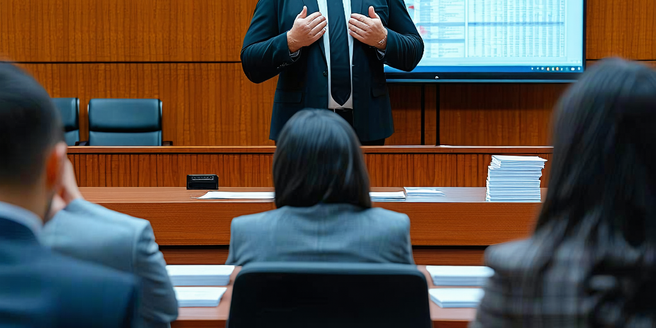
Understanding the Function of Expert Witnesses in Court
Expert witnesses play a pivotal role in legal proceedings by providing specialized knowledge beyond the comprehension of the average person. Their primary function is to furnish insight that assists the court in understanding complex subject matter, which is crucial for delivering informed judgments. An expert witness does this by analyzing evidence, offering testimony that elucidates technical details in layman’s terms, and presenting impartial opinions based on their expertise. This can be particularly vital in cases involving medical malpractice, forensic evidence, or financial disputes, where the intricacies can significantly impact the outcome. Therefore, selecting a skilled expert is crucial to ensuring that their testimony bolsters the arguments in court, rather than muddles them. Judges and juries rely heavily on expert insights to bridge gaps in their knowledge, thus, they must be regarded as an integral part of the judicial process.
Criteria for Selecting an Effective Expert Witness
Choosing the right expert witness can be a decisive factor in a lawsuit’s success. The expert must not only possess extensive knowledge in their field but also be able to communicate complex ideas clearly and persuasively to the court. Expertise alone is insufficient if the witness cannot translate technical jargon into understandable testimony for the layperson. Furthermore, credibility is paramount; an expert’s qualifications, experience, and past performance in similar cases should be thoroughly vetted. Equally important is the expert’s impartiality, as they must be perceived as unbiased to enhance the credibility of their testimony. Additionally, the expert should have a track record of reliability and resilience under cross-examination. Legal teams should, therefore, meticulously evaluate an expert’s ability to deliver insights that are not only technically sound but also compelling and credible to both judge and jury.
The Impact of Expert Testimony on Case Outcomes
The influence of expert testimony in legal cases can be profound, often swaying the court’s decision by clarifying complex information that is pivotal to the case. An expert witness’s ability to break down intricate data into digestible points can strengthen a legal argument, thereby enhancing the persuasiveness of the overall case presentation. The credibility and clarity of the testimony can significantly influence the jury’s perception, potentially validating or undermining key aspects of the case. This is why expert testimony is often viewed as a cornerstone of litigation strategy. However, it is important to note that the expert’s effectiveness is contingent on their communication skills and perceived impartiality. If the expert is deemed biased or unclear, their testimony may be disregarded or even damage the credibility of the party they represent. Thus, selecting the right expert witness can be as important as the legal arguments themselves.
Challenges Faced by Expert Witnesses in Legal Proceedings
Expert witnesses encounter several challenges when navigating the courtroom environment. One significant challenge is maintaining objectivity and impartiality, as opposing counsel may attempt to discredit their testimony by questioning their integrity or accusing them of bias. Additionally, experts must distill complex information into accessible language without oversimplifying, which requires both deep understanding and excellent communication skills. They also face the pressure of cross-examination, where their qualifications and conclusions will be scrutinized intensely. Being subjected to rigorous questioning can be daunting, and experts must be prepared to defend their findings while remaining composed. Furthermore, they may encounter ethical dilemmas if asked to stretch their opinions beyond the evidence or their expertise. Staying within their professional boundaries is crucial to maintain credibility. These challenges require expert witnesses to not only be knowledgeable but also resilient and ethically steadfast.
Future Trends in the Use of Expert Witnesses in Litigation
The role of expert witnesses is evolving with advancements in technology and changes in legal standards. In future litigation, we are likely to see an increased emphasis on digital forensics and data analysis, as cases involving cybercrime or intellectual property theft become more prevalent. This shift will necessitate experts who are proficient in new technological domains. The integration of artificial intelligence in legal processes could also reshape how expert testimony is formulated and presented, potentially increasing efficiency and accuracy in analysis. Additionally, remote testimony via video conferencing is becoming more accepted, offering flexibility and reducing costs. Furthermore, a greater focus on ensuring diversity among expert witnesses may emerge, recognizing the value of varied perspectives in complex cases. Legal systems will continue to adapt to these trends to improve the effectiveness and efficiency of expert involvement in litigation.
